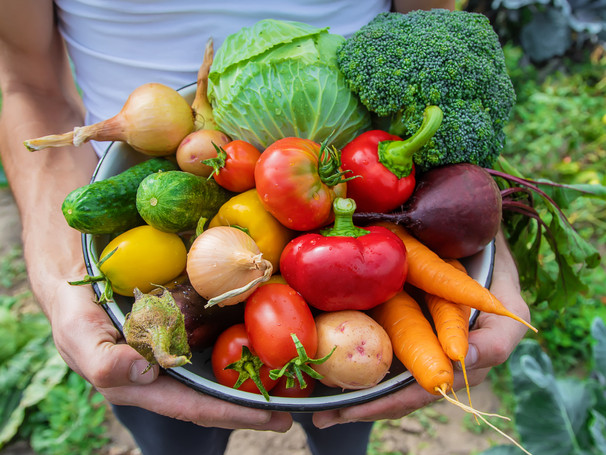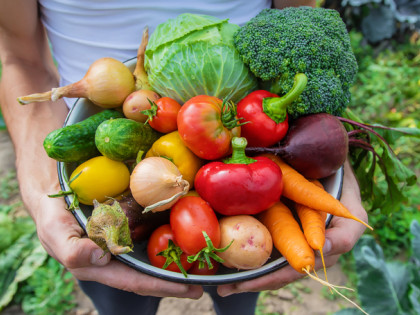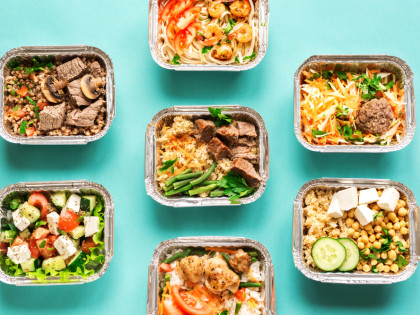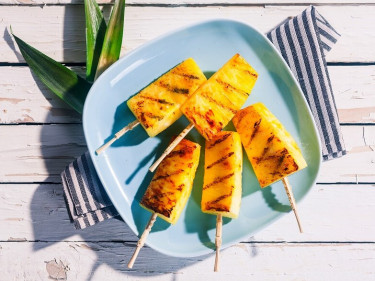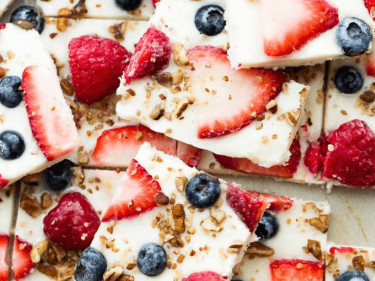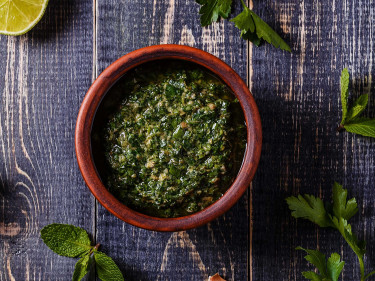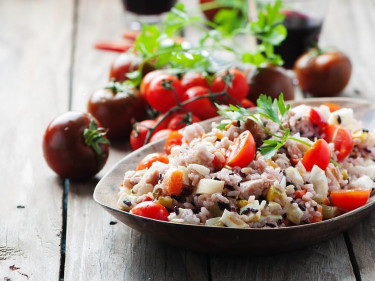Spring has sprung! While the flowers are blooming so are some seasonal fruit and vegetables. What a delicious reason to try some new recipes to make the most of what’s in season!
Check your local supermarket layout, the ‘in season fruit and vegetables’ will usually be at the front as you walk in the store. They are often listed as ‘on special’ because there tends to be a lot in supply !
FRUIT | RECIPES | DID YOU KNOW? |
Bananas | Underripe bananas contain resistant starch, an important compound that supports a healthy gut microbiome. | |
Grapefruit | Citrus fruits including grapefruit and lemons are a good source of Vitamin C which is important nutrient that supports the immune system to fight free radicals and supports the production of immune cells. | |
Lemons | ||
Oranges |
VEGETABLE | RECIPE | DID YOU KNOW? |
Artichokes | Cooking tip: Canned artichokes are often a cheaper alternative to fresh artichokes. | Artichokes and asparagus are a source of fibre. Eating an adequate amount of fibre in the diet supports healthy bowel movements. They are also good sources of prebiotics that resist digestion and provide food that supports a healthy gut microbiome. |
Asparagus | ||
Beansprouts | Beansprouts can be cooked or steamed and placed in a stir fry or served alongside meat or poultry or even as an omelette. If you have a recipe that you’d like to share that uses beansprouts, share it with us here. | Beansprouts are high in Vitamin C, an antioxidant. Antioxidants act to neutralise free radicals that can cause damage and disease. |
Beetroot | Beetroots contain natural compounds betalains which have been shown to have antioxidant properties, which may have protective effects against heart disease and some cancers. | |
Broccoli | Broccoli contains sulforaphane, a sulfur-rich compound which may have anti-viral benefits, as well as promoting a healthy gut microbiota. | |
Brussel Sprouts | Brussel sprouts can be a great substitution for any vegetables like broccoli or cauliflower in dishes including stir fry, curries and even a side dish of vegetables. If you have a recipe that you’d like to share that uses Brussel Sprots, share it with us here. | Brussel sprouts are rich in Vitamin E. Vitamin E is a nutrient that is important in supporting a healthy immune system by reducing oxidative stress, and fighting infections. |
Cabbage | Cabbage contains the phytonutrient, glucosinolates. More research is needed to understand whether glucosinolates have an anti-cancer effect on humans, after showing potential in mice. | |
Cauliflower | Cauliflower is a good source of fibre, the phytonutrient glucosinolate, and potassium. Potassium is an important nutrient involved in maintaining cardiovascular health. | |
Fennel | Fennel bulbs are rich in prebiotic fibre. Prebiotic fibre avoids digestion until it reaches the colon where it is used by the gut microbiota, which in turn produces compounds that offer protection against disease. | |
Leeks | Leeks are a good source of non-haem iron. Iron is required by the body to transport oxygen, immune function, and energy availability. | |
Mushrooms | Mushrooms are the only plant source of Vitamin D, which has a role to play in a healthy immune system, and bone health. We can increase the amount of bio-available vitamin D in mushrooms by exposing them to sunlight. Sunlight converts a compound in mushrooms to a form of Vitamin D that can be more easily absorbed by the body. | |
Peas | Peas and are a good source of fibre. Fibre is an important nutrient that supports good digestion and health bowel habits. | |
Rhubarb | Quick rhubarb recipe: Simmer the rhubarb then add cinnamon and a small amount of sugar, then pair with yoghurt for an easy dessert. Its bitter flavour means it’s a great addition to savoury lamb or pork dishes. | Rhubarb is rich in anthocyanins, an antioxidant that gives it its crimson pigment. Research has shown anthocyanins reduce in the risk of cancer, stroke and heart disease as well as improvements in memory. |
Silverbeet | Cooking tip: Silverbeet can be substituted for spinach in recipes! The flavour of silverbeet is slightly more bitter compared to spinach but a great addition in a stir fry, side of vegetables or in a frittata. | Green leafy vegetables such as silverbeet and spinach are a source of magnesium. Magneisum is an important mineral that supports sleep, athletic performance and muscle relaxation. Research on magnesium has also found that it may act on the happy hormone Seratonin to improve anxiety and depression. |
Spinach |
If any of these recipes contain vegetables that aren’t in season, you can opt for frozen or canned choices to reduce costs. Try these tips when looking for healthy frozen or canned items.



